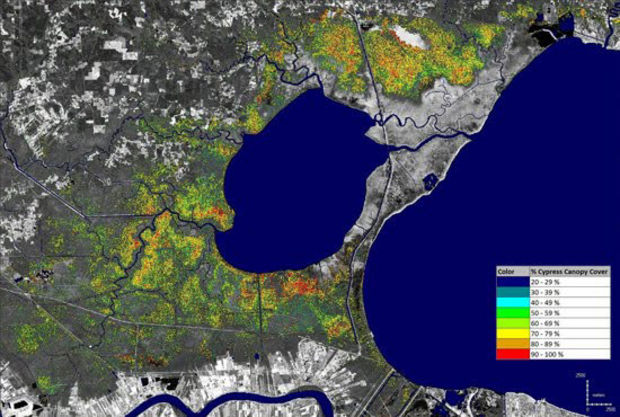Maurepas basin cypress restoration to receive $33K from lawsuit settlement
By Mark Schleifstein, NOLA.com | The Times-Picayune
Email the author | Follow on Twitter
on July 21, 2014 at 8:22 PM

A Tennessee businessman will give $33,000 to Southeastern Louisiana University’s Manchac/Maurepas Bald Cypress Restoration Project to settle a lawsuit filed against him for illegally logging cypress trees in the Maurepas basin.
The settlement between landowner Calvin Howell and two environmental groups — the Lower Mississippi Riverkeeper and the Atchafalaya Basinkeeper — was approved on July 14 by Baton Rouge U.S. District Judge James Brady. The money will pay for the planting of 3,000 “nutria-proofed” cypress saplings. Under the terms of the settlement, Howell made no admission of wrongdoing.
Baton Rouge U.S. Attorney Walter Green notified the court prior to the settlement approval that the provisions were acceptable. In a June 26 letter to the court, Green also said that his office is not bound by the settlement, meaning that the federal government could still bring action against Howell for violating the Clean Water Act.
The two environmental organizations first complained to Army Corps of Engineers officials about the logging operations of Calvin Howell on land north of the Laurel Ridge Levee in Ascension Parish in 2006. Aided by aerial inspections conducted by SouthWings, an environmental organization that conducts overflights of the Louisiana and Gulf Coast area, the groups presented aerial photographs to the corps that documented how Howell was cutting down trees and building logging roads without proper permits.
The corps issued Howell a cease and desist order in 2007 for violating provisions of the Clean Water Act that prohibit adding pollutants to waterways, but did not fine the company. The pollutants in this case included the sediment and debris resulting from clear-cutting the cypress.
“The fact that no fines or restoration orders were issued by the government encourage more illegal logging,” the two groups said in a news release, and the lack of fines prompted them to file suit against Howell under provisions of the Clean Water Act that allow citizens, including non-profit organizations to go to court to enforce the law.
The settlement is “a much-needed victory toward preserving Louisiana’s iconic cypress tree in South Louisiana,” said Atchafalaya Basinkeeper Dean Wilson in a news release announcing the settlement . “Howell cut trees that were likely more than 100 years old in an area that won’t regenerate, and the illegal roads devastated the hydrology of the area, affecting other landowners. The clear-cut also invited invasive species, seriously affecting the ecology of the area.”
“When you look at the benefits of healthy cypress swamps — like reducing storm impacts, providing habitat for fish and game, and opportunities for tourism, bird watching and water sports — Louisiana’s bald cypress trees are worth far more standing in the swamp than being cut,” said Lower Mississippi Riverkeeper executive Paul Orr.
The university’s restoration project began in 1989 and is aimed at restoring the natural regeneration of bald cypress trees in the Manchac and Maurepas area of the Lake Pontchartrain basin. About 80 percent of the saplings planted by the project survive after a year, officials said.